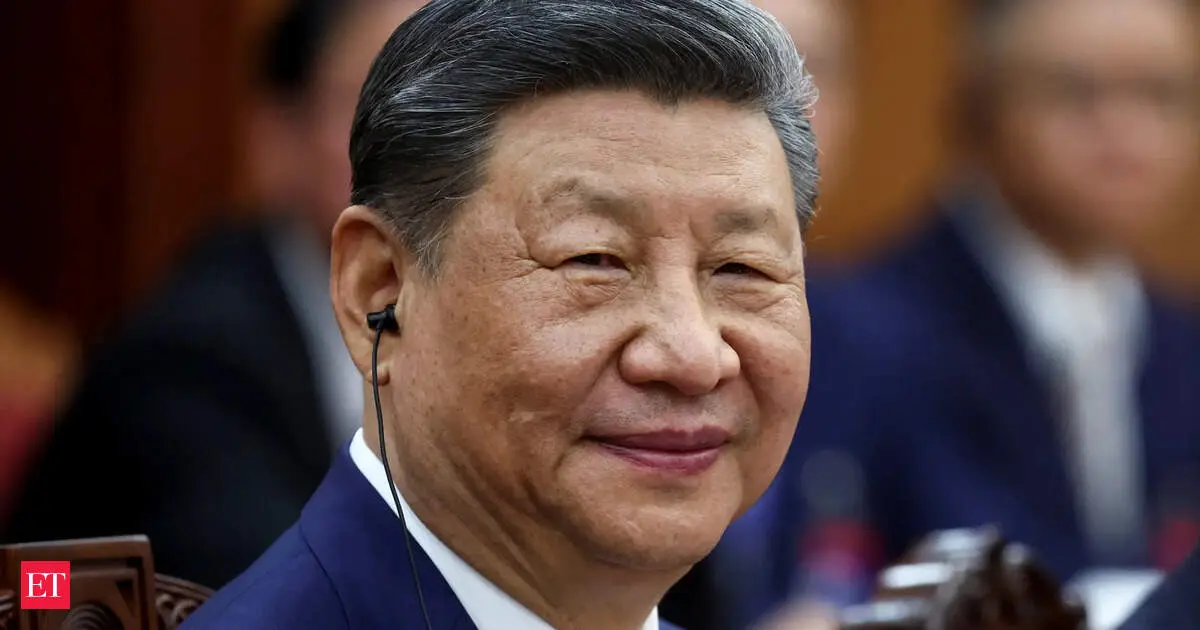New Delhi: In a surprising move, Chinese Premier Li Qiang addressed the United Nations General Assembly this week instead of President Xi Jinping, marking a shift in leadership dynamics. Xi, known for his extensive foreign engagements, is adopting a more hands-off approach, delegating responsibilities to trusted aides like Li. This change highlights the evolving nature of Xi’s leadership as he balances domestic priorities with international diplomacy amidst complex U.S.-China relations.
- Xi Jinping’s Changing Role in Global Diplomacy
- Impacts on U.S.-China Relations
- The Emerging Role of Li Qiang
- Strategic Leadership: Power Dynamics in Chinese Politics
- Implications for International Investors: Navigating New Dynamics
- Bankerpedia’s Insight 💡
- What Does This Mean for Me? 🤔
- Research References 📚
- Loved our Research? ❤️
Xi Jinping’s Changing Role in Global Diplomacy
This week’s session of the United Nations General Assembly witnessed a notable absence: Chinese President Xi Jinping. Instead, Premier Li Qiang took center stage, representing China at the important international forum. This decision is emblematic of a significant change in Xi’s approach to global diplomacy. Historically, Xi has been a vigorous world traveler who used such platforms to bolster China’s international standing. However, his recent choices indicate a preference for limiting international travel and delegating authority to trusted advisers, ushering in a new era for Chinese leadership.
Xi’s absence is particularly noteworthy given that China has often highlighted the importance of the U.N. as a counter to what it perceives as U.S. hegemony in global affairs. Traditionally, Xi has participated in landmark events, such as the U.N. General Assembly in 2015 and in 2020 via video link during the pandemic. His decision not to attend now has raised eyebrows, especially as tensions in U.S.-China relations persist amid ongoing trade negotiations.
Impacts on U.S.-China Relations
The context surrounding Xi’s absence is rife with complexities. Ongoing trade disputes between the U.S. and China have created a volatile diplomatic landscape, leaving both nations hesitant to engage directly. While discussions between Xi and U.S. President Donald Trump are being considered for future meetings, including the Asia-Pacific Economic Cooperation summit in South Korea, many experts believe that the timing of this week’s assembly was too precarious for a direct encounter.
Xi’s more conservative approach to overseas trips may also be driven by personal health considerations and a desire to strategically prioritize domestic governance. Now in his 72nd year, there is speculation that Xi may be reserving energy for critical leadership moments rather than widespread international travels that once characterized his presidency. Political scientists like Neil Thomas believe that this reduction in travel is not merely a function of age but a strategic move to consolidate power by asserting greater control from Beijing.
The Emerging Role of Li Qiang
Premier Li Qiang, who has previously faced skepticism following his tenure as Shanghai’s chief during the city’s COVID-19 lockdown, is now stepping into a more significant role on the world stage. His unexpected elevation to China’s top leadership position reflects a loyalty-driven hierarchy established under Xi’s regime. During his address, Li underscored that China would forgo the special considerations it has received as a developing nation in global trade discussions. This announcement signifies a shift in China’s readiness to assert itself more confidently on international economic issues.
As Li engages with prominent leaders like Ursula von der Leyen, the President of the European Commission, and various heads of state during the assembly, political analysts are closely watching how he navigates these discussions. Thomas describes Li as “an incredibly important person” in this context, stating that he is acting directly on behalf of Xi and is positioned to mediate messages between the Chinese leadership and the world.
Strategic Leadership: Power Dynamics in Chinese Politics
As Li’s prominence grows, the overarching reality remains: Xi Jinping is still firmly in control. While delegating duties to figures like Li may give the appearance of a more distributed power structure, experts contend that Xi’s regime has consolidative power through his loyalist-heavy political appointments from past reshuffles. This dynamic allows Xi to maintain ultimate authority while exploring a more hands-off operational methodology.
The evolving nature of Xi’s leadership has incited discussions about what this means for China’s international posture moving forward. Observers note that while Xi may be delegating tasks, the influence over China’s foreign policy still lies squarely in his hands. This calculated approach to governance may have implications not only for international relations but also for how China engages in global economic forums.
Implications for International Investors: Navigating New Dynamics
For international investors and businesses looking to engage with China, the recent developments carry significant implications. As Premier Li Qiang emerges as an operative figure, understanding his priorities becomes essential for those interested in entering or expanding within the Chinese market. For instance, businesses focusing on technological partnerships or sustainable initiatives can align their proposals with China’s shifting policies on global trade and economic cooperation. Similarly, companies should consider adapting their strategies to accommodate Li’s leadership style, which may prioritize swift decision-making and alignment with Xi’s long-term goals.
Investors should prioritize establishing direct communication channels that enable smooth interactions with Li and his team. Engaging with Chinese decision-makers earlier in the process can help set the stage for productive partnerships that better reflect the evolving landscape of Chinese leadership.
| Key Facts | Details |
|---|---|
| Xi’s Age | 72 |
| Duration of Xi’s Presidency | 13 years |
| Year of Last Major Xi UN Speech | 2015 |
| Li Qiang’s Position | Premier (No. 2 Official) |
| Li’s Previous Role | Chief of Shanghai during lockdown |
Bankerpedia’s Insight 💡
Xi Jinping’s reduced international presence, with Premier Li Qiang stepping in, signifies a pivotal shift in China’s diplomatic strategy. This evolution highlights a consolidation of power where Xi delegates tasks without relinquishing authority, impacting global diplomacy and economic relations. For India’s banking and finance sector, this could lead to alterations in trade dynamics, affecting investments and collaborations. Businesses should stay informed about shifting political landscapes to mitigate risks and seize new opportunities in Sino-Indian economic interactions. Understanding these changes can enhance strategic positioning in an increasingly interlinked global market.
What Does This Mean for Me? 🤔
| If I am a… | The Impact is… |
|---|---|
| Salaried Person | Reduced international engagement may affect global job markets. |
| Business Owner | Increased diplomatic engagement opportunities with Chinese leadership. |
| Student | Shifts in global leadership dynamics may affect student perspectives. |
| Self-employed | Potential uncertainty in trade relations and economic opportunities. |
| Homemaker | Less international dialogue may affect global product availability. |
| Retiree / Senior Citizen | Increased global instability may affect retirement savings security. |
| Job Seeker | Potential shifts in China’s leadership affect job market stability. |
| Farmer / Rural Citizen | Potential instability in trade relations may affect agricultural exports. |
Research References 📚
Loved our Research? ❤️
Bankerpedia turns financial confusion into clarity!
Want the latest banking insights, money tips, and financial hacks delivered straight to your WhatsApp? Just send ‘Hi’ – it’s that simple, and you’ll never miss a smart update again!










